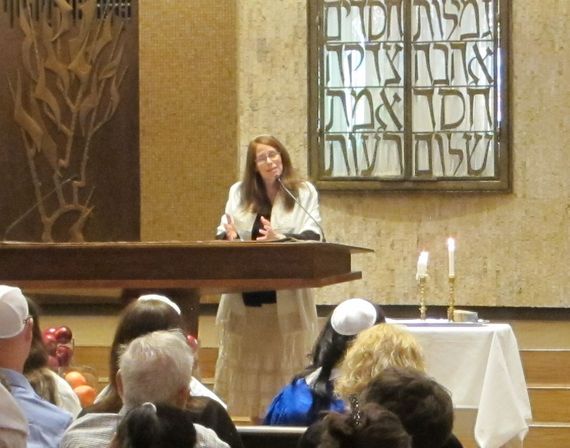On July 20th the US Congress began its 60-day review of the nuclear accord with Iran. With the determined opposition it has engendered in Israel, the accord has been described as the most momentous political challenge faced by the Jewish community in a generation.
On September 13th--53 days into this review--Jews across the United States will gather in synagogues for Rosh Hashanah, the Jewish New Year, the first of the two Jewish High Holy Days. A debate is currently raging amongst rabbis who will be speaking to their packed congregations during those days. Should we speak about the Iran deal?
The Elephant in the Room
On the one hand, not to do so seems like a travesty. It is what everyone is talking about. How could rabbis ignore the elephant sitting in the room? On the other hand, is it an issue on which rabbis really have expertise? We are spiritual leaders, not politicians or nuclear scientists.
The non-Orthodox Jewish movements--which represent about 85 percent of American Jews--seem to have chose the latter approach. While every major Jewish organization has announced a position on the Iran deal, neither the Reform nor Conservative movements have done so. While a few bold rabbis have taken a position, some have spoken out strongly against the wisdom of doing so. (See a collection of responses by Jewish organization here
.)
To avoid the issue during the holidays would be a tremendous mistake. While rabbis need not take a for-or-against position on the Iran deal, to not address it would be to forfeit our role as Jewish leaders. Here's why:
1. It matters to our community: Before I was a rabbi, I came to holiday services to learn, grow and be challenged. I came because Judaism has something to say about the issues that matter to us.
The Iran deal falls squarely within this category. It affects the Jewish state. It affects American security. It affects our cohesiveness as a people. To ignore it would be to suggest Judaism matters only within the walls of the sanctuary, and not as a source of guidance amidst the everyday challenges and concerns of our lives.
2. Everything is Torah: Some believe rabbis should restrict themselves to speaking about matters of prayer and religion. We are, so this argument goes, interpreters and teachers of Torah, not nuclear scientists or politicians.
They are right. We are not nuclear scientists, diplomats or politicians. We are interpreters and teachers of Torah. Yet, Torah is not only a scroll that sits in the ark. It is a blueprint for how to live, how to learn, how to debate, discuss and grow. A great sage once said about Torah, "Turn it, Turn it, for everything is contained within it." Torah is life, and we can bring Torah to bear on the issues that affect the lives of American Jews.
3. Leadership matters: Partisan politics has no place on the pulpit. Engaging in it is not only unwise; it is illegal. To avoid partisanship, however, does not mean we need to avoid taking a stand. We Jews are a people who respect debate. The entire Talmud is filled with competing arguments and even the losing ones are given respect. We can state our position without doing so in a disrespectful or dismissive way.
I realize this is easier said than done. We rabbis have as many bosses as we have members of our congregation. They can challenge us, question us, even go to our board and attack us.
Yet, I have found that congregants respect rabbis who take a clear position, even when they disagree with it. They respect a willingness to engage on issues that matter. They respect someone who does not avoid controversy at all costs.
Our purpose as rabbis is to bring Jewish tradition to bear on the lives of our community. This purpose demands the moral courage to speak out and lead.
To see the range of responses responses among Jewish organizations to the accord, click here
